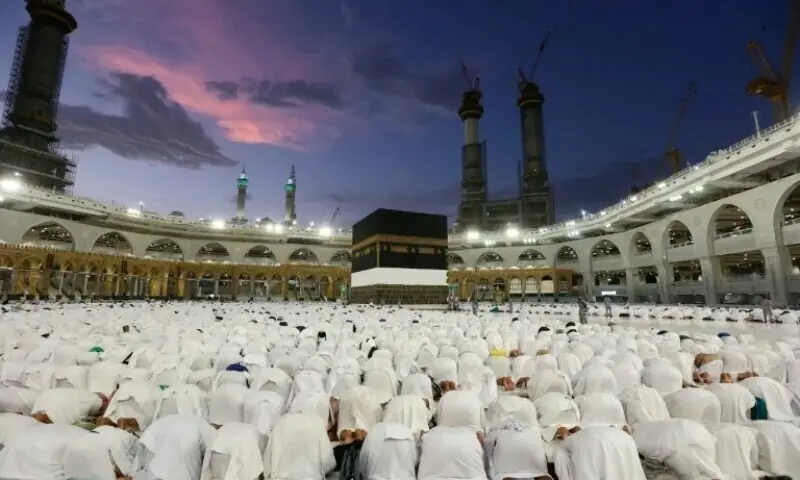The Saudi government has imposed a restriction on pilgrims with certain health conditions, including chronic and infectious diseases, from performing the Haj next year, according to a notice on the Ministry of Religious Affairs website.
The notice, citing the Saudi Ministry of Health, lists organ failures such as kidney diseases requiring dialysis, heart diseases in cases where patients are not able to exert even minimal effort, chronic lung diseases in patients requiring intermittent or continuous oxygen, and liver failure or liver cirrhosis as conditions that do not meet the criteria for Haj.
The list also includes those who suffer from neurological or cognitive disorders that affect memory, dementia and severe physical disability. Additionally, elderly people with Alzheimer’s or who suffer from tremors, as well as pregnant women in their last trimester or those with complications, would face restrictions.
Additionally, those with infectious diseases that pose a risk to others in large gatherings, such as whooping cough, open pulmonary tuberculosis, and viral hemorrhagic fever, would also be prohibited from performing the Haj.
The list also includes patients who suffer from cancer in advanced stages and undergo chemotherapy, biological or radiological treatment.
Pakistan’s Ministry of Religious Affairs urged doctors to issue health certificates to pilgrims after proper verification to avoid legal action and warned that in case of false and incorrect health claims, the pilgrim concerned would have to return from Saudi Arabia at his own expense.
In case any of the above-mentioned diseases were detected in an individual while getting vaccinated, medical officials at Haj Camp would be authorized to prevent him from traveling, according to the advisory.
Saudi monitoring teams will check the validity of pilgrims’ physical fitness certificates at entry and exit points and at Haj sites to ensure that only those who meet health criteria participate in the pilgrimage, according to the notice.








